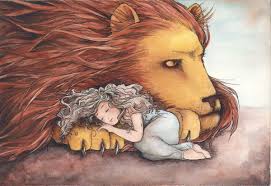Baaa
I’m with most people on this: I
resent my behaviour being analyzed as if I were a dog, or a lion,
or a sheep. As in, for instance, “We
all, like sheep, have gone astray, each of us has turned to
our own way . . .” (Isaiah 53:6, NIV). Most galling is the
implication that I’m guided by a “herd mentality,” the
accusation that I’m not choosing my path logically and
intelligently, but am just going along with whatever “herd” I
happen to have chosen.
Political parties are “herds,”
religious denominations are “herds,” Fox News watchers are a
“herd,” CNN watchers are a different “herd.” It’s not
hard—they say—to tell which herd you or I are loyal to; we spout
a common line even if we don’t understand it, exhibit similar
behaviours, denigrate people who don’t belong in our “herd.”
As hard as we've worked at it, the
conviction that a race is a herd has been almost
impossible to eradicate. Baaa.
Like bison or caribou, though, to opt
“out of your herd” can be dangerous. Or medicine, for
instance. Although not 100% reliable, vaccines when applied to an
entire population result in “herd immunity,” a situation where
acting as a herd has, for instance, wiped out diphtheria. If enough
people break from the herd and refuse to vaccinate, the virus will
eventually find a soft spot in the herd where it can again propagate,
threatening the whole herd once again.
We don’t take defection from the
herd lightly; we set the guidelines for “who’s in and who’s
out” pretty strictly. What is homophobia, after all, except an
attempt to preserve the homogeneity of certain herds? What is racism
except herd mentality where the borders are defined by skin colour?
What is denominational-ism except a set of criteria that delineate
the borders of a herd? We defend our positions on any number of
issues on a “right vs. wrong” basis when what we’re actually
doing is trying in whatever way we can to preserve the integrity of
our herd. Our safety, we believe, depends on it.
It’s been said over and over that
ours is an age of individualism, that community is breaking down and
the bonds among people no longer hold. This is, of course,
herd-speak, something so many people have said so often that
it’s become conventional wisdom. But it’s poppycock. Humans are a
herding species of animal; the fact that we abandon one herd in
favour of another that exists, possibly, primarily behind our
television screen, in hockey arenas, in our Facebook world, in some cult-like
separation from our earlier herd doesn’t mean we’re
“individualistic,” it just means there are realignments of herd
allegiances going on as never before. From that standpoint alone,
it’s evident that we’re living in dangerous—and
interesting—times.
(So here’s a discouraging irony:
Klavier Onk considers himself a free-thinker, a reader and observer
in great detail of the world around him. Definitely not one of all
those sheep who’ve gone astray. He organizes a free-thinkers book
club, subscribes to New Yorker, drinks his coffee at Starbucks with
his laptop open to some erudite website on cosmology, or liberal
theology, or philosophy and . . . and suddenly realizes that he’s
now part of the holier-than-thou, smarter-than-thou academic elite:
another, different herd.)
The gospel of Christ can be read
through the consciousness of a divided, competing-herds world and a
lone voice urging us to see that there is but one herd (Kingdom of
God, heaven, it has various names) that can answer a need and a
longing for peace and prosperity for all people for all time.
Unfortunately, his followers seem never to have understood it fully;
they set out to found a new, competing herd called “the church.”
They should have been out there softening the borders as their mentor
tried so hard to do; but instead they ended up simply moving them
around, most of them being rewarded for their efforts by dying for daring to challenge the boundaries of the
prevailing “herd.”
Maybe it’s a dream that nudges us
toward something more “heaven-like,” if unreachable.
Possibly, the brighter future can only begin if and when we accept
that we’re sheep who don’t necessarily go astray, but who can
actually make nice with a herd of wolves. Somewhere there’s a story
(or is it just a hope) that reads, “The wolf will live with the
lamb, the leopard will lie
down with the goat, the calf and the lion
and the yearling together; and a little child will lead them.” Oh,
yah. That was Isaiah again, 11:6 to be exact. If that’s not a
metaphor pointing toward the softening of hard, herd borders, I can’t
imagine what would be!
Neither can I imagine a disciple of
Christ ever saying something as ludicrous as, “We’re gonna build
us a wall.” Can you?




Comments
Post a Comment